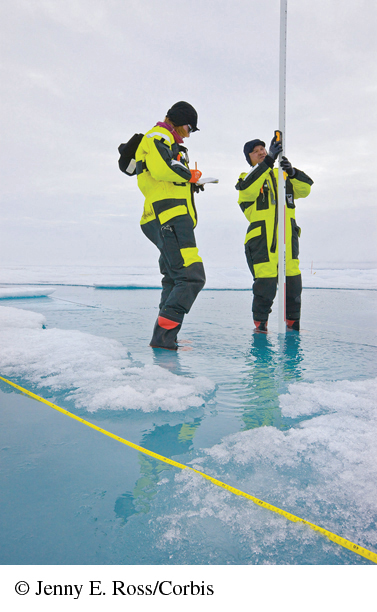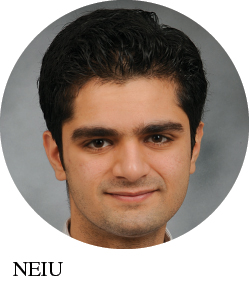Keep Developing Your Career — Even While You Work!
Career planning doesn’t end once you have a job. Rather, you can continue developing your career even while you work by seizing opportunities to master new skills, advance in your chosen profession, or even try a different career if your work values, interests, skills, or other life circumstances change. If you make a change, you’ll be in good company: According to the U.S. Bureau of Labor Statistics, people change their jobs an average of eleven times before they approach retirement age.6
Advance in Your Chosen Career
As you refine your professional goals, you may find that making a career plan helps you rise in the ranks at your company or organization. Consider Sam, who had been working for two years as a clinical data manager at a regional hospital. One day, Sam learned that one of her coworkers, Elaine, was promoted to associate director of data management at an outpatient clinic in town. Sam wanted to get a similar promotion, so she did some career planning: She set out to learn what kinds of training and experience would best prepare her to take this next step in her professional life. Her plan included conducting informational interviews with her supervisor, Tomas, and with Elaine. As it turned out, Tomas was delighted to hear of her interest in advancement. He gave her new responsibilities to help her build her skills, such as managing the data-entry clerks in her office, and also recommended that she take online courses to develop the further skills she needed to advance in her career. And from Elaine, Sam learned a lot about the skills she’d need in order to excel in that more challenging, complex role.

Explore New Opportunities
For a different example of on-the-job career development, consider Seth’s experience. As a gaming supervisor for a large casino in Las Vegas, Seth discovered that he liked working with people but wasn’t happy with the job’s unpredictable hours and stressful working conditions, which included constant noise, flashing lights, and dealing with disruptive customers. He thought about changing jobs but worried that he wouldn’t make as much money in a new job without receiving considerable retraining. His work values had shifted: He had started a family, so financial security was important to him. And because being a parent was exhausting, he valued workplace settings that were quiet and relatively stress-free — a value that his current job didn’t uphold.
So Seth logged onto the O*NET and researched occupations that would let him work with people but that had more predictable hours, less stressful working conditions, and acceptable pay. After reviewing the search results, he zeroed in on one option he found particularly interesting: dental hygienist. Then he did additional research to find out what training he’d need to move into this job.
Whether you want to advance in your chosen occupation or change careers entirely, you can use the skills you’re developing this term to make smart work-related decisions in the future. What kinds of career decisions do you see yourself making in the next ten years? Do you feel better prepared to make those decisions now than you did at the start of the term? Why or why not?
voices of experience: employee
ON-THE-JOB CAREER PLANNING

| NAME: | Bilal Malik |
| PROFESSION: | Associate Consultant |
| SCHOOL: | Northeastern Illinois University |
| DEGREE: | Bachelor of Science |
| MAJOR: | Computer Science |
“By creating and following a plan, I have a good handle on where my career will be in the next few years.”
I started figuring out my career plan back when I was in college. I had taken a few courses in computer security, and when I realized how much I liked them, I made that my focus and found ways to get experience. I participated in computer security–related events at school to network with information security professionals. One of my teachers, who also worked in the IT department, recognized my enthusiasm for the subject matter and recommended me for a Network Security Internship on campus.
I’ve since graduated and have a job in computer security, where I work on making credit card transactions more secure. While I’m off to a good start, in order to make sure my career develops the way I’d like it to, I picked up where I left off in college and went back to work on a career plan. I’m currently in year one of a three-year plan that I created. During this first year, I took some classes outside of college, picked up an extra certification, and started my first job. I also did some research and talked with colleagues in the information security field. I’m going to spend the second year of my plan gaining knowledge and expertise in the area of health care information security. I’ll spend the third year building my skills and expertise around standards in the field. By creating and following a plan, I have a good handle on where my career will be in the next few years.
YOUR TURN: If you’re currently working, where do you see your work life headed? Do you want to advance in your career? If so, could you build a multiyear plan for doing so, as Bilal did? What action steps would you include in your plan?